Speakers
Heila Lotz Sisitka
Professor, Murray & Roberts Chair in Environmental Education, Rhodes University
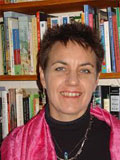 Heila Lotz-Sisitka, co-editor of ‘Critical Realism, Learning and Social-ecological Change’, focused on socially critical approaches to environmental education in the context of post-apartheid participatory teacher education and learning materials development for her doctoral research. She also served as an editor of the Southern African Journal of Environmental Education, a Department of Higher Education and Training accredited journal. She has contributed to national and international policy development for environmental education; the UNESCO International Reference Group for the UN Decade on Education for Sustainable Development (2005-2014); the United Nations Environment Programme’s Global Universities Programme for Environment and Sustainability (2008-present); and Scientific Chair of the 2007 World Environmental Education Congress. In 2014, she served as rapporteur generale of the UNESCO World Education for Sustainable Development Conference. She became a recipient of the Vice Chancellors Distinguished Teaching award and a co-recipient of the Vice Chancellors Community Engagement award. She has also received the WESSA Gold Award, the Environmental Education Association of Southern Africa Founders Award, and the Green Matter Senior Fellowship Award for excellent contributions in the field of environmental education in the southern South Africa.
Heila Lotz-Sisitka, co-editor of ‘Critical Realism, Learning and Social-ecological Change’, focused on socially critical approaches to environmental education in the context of post-apartheid participatory teacher education and learning materials development for her doctoral research. She also served as an editor of the Southern African Journal of Environmental Education, a Department of Higher Education and Training accredited journal. She has contributed to national and international policy development for environmental education; the UNESCO International Reference Group for the UN Decade on Education for Sustainable Development (2005-2014); the United Nations Environment Programme’s Global Universities Programme for Environment and Sustainability (2008-present); and Scientific Chair of the 2007 World Environmental Education Congress. In 2014, she served as rapporteur generale of the UNESCO World Education for Sustainable Development Conference. She became a recipient of the Vice Chancellors Distinguished Teaching award and a co-recipient of the Vice Chancellors Community Engagement award. She has also received the WESSA Gold Award, the Environmental Education Association of Southern Africa Founders Award, and the Green Matter Senior Fellowship Award for excellent contributions in the field of environmental education in the southern South Africa.
Mahesh Pradhan
Chief, Environmental Education and Training Unit (EETU), Division of Environmental Policy Implementation (DEPI), United Nations Environment Programme (UNEP)
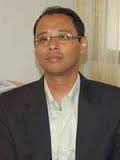 Mahesh Pradhan oversees EETU’s implementation of UNEP's mission to provide leadership and encourage partnership in caring for the environment by inspiring, informing, and enabling nations and peoples to improve their quality of life without compromising that of future generations. In close coordination with UNEP's Regional Office for Asia and the Pacific, the partnership with Tongji University through the joint UNEP-Tongji Institute of Environment for Sustainable Development (IESD) in Shanghai is looked into by him. Similar partnerships at the regional level in Latin America and the Caribbean through MESCA and the Environmental Training Network (ETN), West Asia, Europe and North America are envisaged. In 2009, he was assigned as Interim Director of the AIT-UNEP Regional Resource Centre for Asia and the Pacific (RRC.AP), which is located on campus of the Asian Institute of Technology (AIT) in Pathumthani, Thailand.
Mahesh Pradhan oversees EETU’s implementation of UNEP's mission to provide leadership and encourage partnership in caring for the environment by inspiring, informing, and enabling nations and peoples to improve their quality of life without compromising that of future generations. In close coordination with UNEP's Regional Office for Asia and the Pacific, the partnership with Tongji University through the joint UNEP-Tongji Institute of Environment for Sustainable Development (IESD) in Shanghai is looked into by him. Similar partnerships at the regional level in Latin America and the Caribbean through MESCA and the Environmental Training Network (ETN), West Asia, Europe and North America are envisaged. In 2009, he was assigned as Interim Director of the AIT-UNEP Regional Resource Centre for Asia and the Pacific (RRC.AP), which is located on campus of the Asian Institute of Technology (AIT) in Pathumthani, Thailand.
Alexander Leicht
Chief, Section of Education for Sustainable Development, UNESCO, Paris
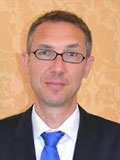 Before joining UNESCO in 2011, Alexander Leicht, was head of the German Secretariat for the UN Decade of Education for Sustainable Development at the German Commission for UNESCO in Bonn since 2004, where he also led the organizing team for the preparations of the UNESCO World Conference on Education for Sustainable Development in 2009. He also worked as a professor in Hungary and the United Kingdom for three years. Originally trained as a teacher, with a graduate degree in literature, at the University of Marburg, Germany, and at the University of Massachusetts at Amherst, USA. He holds a PhD in American Studies from the University of Nottingham, United Kingdom. His current priorities include coordinating the follow-up to the UNESCO World Conference on ESD in 2014, where the Global Action Programme on ESD was launched as the successor framework to the UN Decade of ESD.
Before joining UNESCO in 2011, Alexander Leicht, was head of the German Secretariat for the UN Decade of Education for Sustainable Development at the German Commission for UNESCO in Bonn since 2004, where he also led the organizing team for the preparations of the UNESCO World Conference on Education for Sustainable Development in 2009. He also worked as a professor in Hungary and the United Kingdom for three years. Originally trained as a teacher, with a graduate degree in literature, at the University of Marburg, Germany, and at the University of Massachusetts at Amherst, USA. He holds a PhD in American Studies from the University of Nottingham, United Kingdom. His current priorities include coordinating the follow-up to the UNESCO World Conference on ESD in 2014, where the Global Action Programme on ESD was launched as the successor framework to the UN Decade of ESD.
Charles Hopkins
UNESCO Chair, Reorienting Teacher Education to Address Sustainability
Executive Director, John Dearness Environmental Society
Advisor, Environment Canada's Ecological Monitoring and Assessment Network (EMAN)
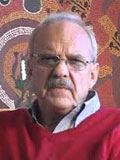 Charles Hopkins is a senior advisor to UNESCO's trans-disciplinary project, ‘Educating for a Sustainable Future and the Chair of the Education for Sustainable Development Working Group’ of UNESCO Canada's Man and the Biosphere Committee (MAB). As part of the UN preparation for the Earth Summit in Rio de Janeiro, he was one of the drafters of Chapter 36 of Agenda 21: Education, Public Awareness and Training. Hopkins has been a part of UNESCO's efforts to develop education for sustainable development since its inception. His research interests are in reorienting teacher education to address the environmental, social and economic issues inherent in sustainable development, curricula for the 21st century and transforming education, public awareness and training to address sustainable development. He received a Lifetime Achievement Award from the North American Association for Environmental Education (NAAEE).
Charles Hopkins is a senior advisor to UNESCO's trans-disciplinary project, ‘Educating for a Sustainable Future and the Chair of the Education for Sustainable Development Working Group’ of UNESCO Canada's Man and the Biosphere Committee (MAB). As part of the UN preparation for the Earth Summit in Rio de Janeiro, he was one of the drafters of Chapter 36 of Agenda 21: Education, Public Awareness and Training. Hopkins has been a part of UNESCO's efforts to develop education for sustainable development since its inception. His research interests are in reorienting teacher education to address the environmental, social and economic issues inherent in sustainable development, curricula for the 21st century and transforming education, public awareness and training to address sustainable development. He received a Lifetime Achievement Award from the North American Association for Environmental Education (NAAEE).
Bob Jickling
Professor Emeritus at Lakehead University
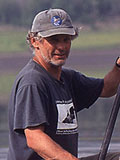 Bob Jickling is Professor Emeritus at Lakehead University. At Lakehead he taught environmental, experiential, and outdoor education and environmental philosophy. He was the founding editor the Canadian Journal of Environmental Education and he co-chaired the 5th World Environmental Education Congress in Montreal. He has also received the North American Association of Environmental Education’s Awards for Outstanding Contributions to: Research (2009) and Global Environmental Education (2001). In 2012, he received the Queen Elizabeth II Diamond Jubilee Medal in recognition of contributions to Canada. As a long-time wilderness traveller, much of his inspiration is derived from the landscape of his home in Canada’s Yukon.
Bob Jickling is Professor Emeritus at Lakehead University. At Lakehead he taught environmental, experiential, and outdoor education and environmental philosophy. He was the founding editor the Canadian Journal of Environmental Education and he co-chaired the 5th World Environmental Education Congress in Montreal. He has also received the North American Association of Environmental Education’s Awards for Outstanding Contributions to: Research (2009) and Global Environmental Education (2001). In 2012, he received the Queen Elizabeth II Diamond Jubilee Medal in recognition of contributions to Canada. As a long-time wilderness traveller, much of his inspiration is derived from the landscape of his home in Canada’s Yukon.
Dr. Jim Taylor
Director of environmental education for the Wildlife and Environment Society of South Africa (WESSA)
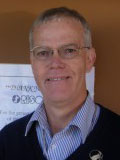 Dr. Jim Taylor is currently the director of environmental education for the Wildlife and Environment Society of South Africa (WESSA). Essentially the mission of WESSA is to promote public participation in caring for the Earth. Dr. Taylor has a particular interest in environmental education, Education for Sustainable Development (ESD) and social change processes. Dr. Taylor is the founder member of the Southern African Development Community’s Regional Environmental Education Programme (SADC-REEP). For over ten years, he has been supporting the International Training Programme (ITP) Education for Sustainable Development course programme that is supporting professionals from Sweden, South Africa, Zimbabwe, Tanzania, Malawi, Bangladesh, Cambodia, India, Afghanistan and Indonesia. Dr Taylor is also a founder member of the Environmental Education Association of Southern Africa (EEASA) and is a past President. He has a PhD in environmental education from Rhodes University and a master’s degree in environmental psychology awarded through the University of Surrey in the U.K.
Dr. Jim Taylor is currently the director of environmental education for the Wildlife and Environment Society of South Africa (WESSA). Essentially the mission of WESSA is to promote public participation in caring for the Earth. Dr. Taylor has a particular interest in environmental education, Education for Sustainable Development (ESD) and social change processes. Dr. Taylor is the founder member of the Southern African Development Community’s Regional Environmental Education Programme (SADC-REEP). For over ten years, he has been supporting the International Training Programme (ITP) Education for Sustainable Development course programme that is supporting professionals from Sweden, South Africa, Zimbabwe, Tanzania, Malawi, Bangladesh, Cambodia, India, Afghanistan and Indonesia. Dr Taylor is also a founder member of the Environmental Education Association of Southern Africa (EEASA) and is a past President. He has a PhD in environmental education from Rhodes University and a master’s degree in environmental psychology awarded through the University of Surrey in the U.K.
Dr. Roger Auguste Petry
Associate Professor at Luther College at the University of Regina in the Department of Philosophy and Classics
 Dr. Roger A. Petry is an Associate Professor at Luther College at the University of Regina in the Department of Philosophy and Classics. He is a Rhodes Scholar and has obtained degrees in philosophy and mathematics from the University of Regina, philosophy, politics, and economics and philosophical theology from the University of Oxford, and an interdisciplinary Ph.D. awarded in 2008 through the Canadian Plains Studies Program at the University of Regina. His doctoral thesis contrasts university innovation for sustainable development in relation to commercialization and open source licensing strategies. He is co-coordinator of the Regional Centre of Expertise on Education for Sustainable Development in Saskatchewan (RCE Saskatchewan), one of 138 RCEs recognized globally by the United Nations University to help advance the U.N. Decade of Education for Sustainable Development (ESD) from 2005-2014 and the new Global Action Programme on ESD.
Dr. Roger A. Petry is an Associate Professor at Luther College at the University of Regina in the Department of Philosophy and Classics. He is a Rhodes Scholar and has obtained degrees in philosophy and mathematics from the University of Regina, philosophy, politics, and economics and philosophical theology from the University of Oxford, and an interdisciplinary Ph.D. awarded in 2008 through the Canadian Plains Studies Program at the University of Regina. His doctoral thesis contrasts university innovation for sustainable development in relation to commercialization and open source licensing strategies. He is co-coordinator of the Regional Centre of Expertise on Education for Sustainable Development in Saskatchewan (RCE Saskatchewan), one of 138 RCEs recognized globally by the United Nations University to help advance the U.N. Decade of Education for Sustainable Development (ESD) from 2005-2014 and the new Global Action Programme on ESD.
Dr. Kimberley Deeann Smith
Coordinator of the Greater Portland Regional Center of Expertise on Education for Sustainable Development
 Kimberley Deeann Smith is the Coordinator of the Greater Portland Regional Center of Expertise on Education for Sustainable Development, through the United Nations University system. She has completed her B.A. in Sociology from Whitman College, and her Ph.D. in Sociology from Indiana University. She has taught sociology at PCC since 1996. While she enjoys teaching all of the introductory sociology classes, her specialties are environmental sociology and social movements. She is committed to promoting sustainability within the community and has worked closely with many non-profit organizations. In 2012, she served as the higher education representative for North America, through the Association for the Advancement of Sustainability in Higher Education (AASHE), at the United Nations Rio+20 Earth Summit, in Rio de Janeiro.
Kimberley Deeann Smith is the Coordinator of the Greater Portland Regional Center of Expertise on Education for Sustainable Development, through the United Nations University system. She has completed her B.A. in Sociology from Whitman College, and her Ph.D. in Sociology from Indiana University. She has taught sociology at PCC since 1996. While she enjoys teaching all of the introductory sociology classes, her specialties are environmental sociology and social movements. She is committed to promoting sustainability within the community and has worked closely with many non-profit organizations. In 2012, she served as the higher education representative for North America, through the Association for the Advancement of Sustainability in Higher Education (AASHE), at the United Nations Rio+20 Earth Summit, in Rio de Janeiro.
Dr. Ian Humphreys
Chief Executive of Keep Northern Ireland Beautiful environmental charity
 Dr. Ian Humphreys has his PhD from the Queen's University of Belfast and has strong environmental and research credentials. As the Chief Executive of Keep Northern Ireland Beautiful environmental charity, Dr. Humphreys has overseen rapid growth in Eco-Schools, the re-introduction of the Seaside Awards and the development of litter-related campaigns such as the BIG Spring Clean, monitoring including the Northern Ireland Litter Survey and research. He has also developed a range of support services for councils including the Northern Ireland Environmental Quality Forum, the litter summit and enforcement training. He is also involved in the running of Copeland Bird Observatory in a voluntary capacity.
Dr. Ian Humphreys has his PhD from the Queen's University of Belfast and has strong environmental and research credentials. As the Chief Executive of Keep Northern Ireland Beautiful environmental charity, Dr. Humphreys has overseen rapid growth in Eco-Schools, the re-introduction of the Seaside Awards and the development of litter-related campaigns such as the BIG Spring Clean, monitoring including the Northern Ireland Litter Survey and research. He has also developed a range of support services for councils including the Northern Ireland Environmental Quality Forum, the litter summit and enforcement training. He is also involved in the running of Copeland Bird Observatory in a voluntary capacity.
Jean-Christophe CARTERON
CSR Director,
KEDGE Business School – France
 Director of CSR, Carteron coordinates the School’s SD strategy, helps to develop research (5 dedicated Chairs and a think-tank on responsible management) and pedagogical activities on sustainable development. He works on leading by example though a more sustainable approach of the campus (12 000 students).
Director of CSR, Carteron coordinates the School’s SD strategy, helps to develop research (5 dedicated Chairs and a think-tank on responsible management) and pedagogical activities on sustainable development. He works on leading by example though a more sustainable approach of the campus (12 000 students).
Board Member of different NGOs, Foundations, and Social enterprise, he is a leading actor in working groups mainly focalized on social responsibility for higher education institutions: UN PRME (Principle for responsible Management Education), GRLI (Globally responsible Leadership Initiative) and GUPES-UNEP).
Since 2012 he is the Senior Advisor for the “ Higher Education Sustainable Initiative” (the biggest voluntary commitments during the Rio+20). He was a cofounder of the “The Platform for Sustainability Performance in Education” supported by UNESCO, PRME, Global Compact and UNEP. He has launched the sustainability literacy Test, the first international assessment tool of SD knowledge, already taken by 39.000 students from 400 universities from 43 countries.
Dr. Betsan Patricia Martin
Director of Response, a New Zealand based organization working on Ethics, Responsibility and Governance
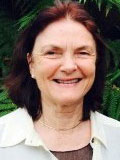 Dr. Betsan Patricia Martin is Director of Response, a New Zealand based organization working on Ethics, Responsibility and Governance with the International Forum on Ethics and Responsibility. Response collaborates with national and international organizations such as IUCN, and with Pacific regional networks. Dr. Betsan has led the successful proposal to the UNU to become a Regional Centre of Expertise in Education for Sustainable Development, based at the University of Waikato. She has been on International Forum on Ethics and Responsibility since its inception in 2004. The Forum focuses on institutional transformation to reflect human interdependence with earth’s ecosystems. Dr. Martin’s interests span the local to the global. As the Director of Response, she is involved with a Māori environmental initiative, she is Co-Chair of ECO (Environment and Conservation Organizations), and she is Executive Officer of Public Issues, a national justice role working on social and environmental wellbeing, Climate responsibility, and international trade. Her academic studies in ethics and responsibility provide a cohesive and integrating theme across her work in social, environmental and economic areas; it takes inspiration from the principles of a Charter for Human Responsibility.
Dr. Betsan Patricia Martin is Director of Response, a New Zealand based organization working on Ethics, Responsibility and Governance with the International Forum on Ethics and Responsibility. Response collaborates with national and international organizations such as IUCN, and with Pacific regional networks. Dr. Betsan has led the successful proposal to the UNU to become a Regional Centre of Expertise in Education for Sustainable Development, based at the University of Waikato. She has been on International Forum on Ethics and Responsibility since its inception in 2004. The Forum focuses on institutional transformation to reflect human interdependence with earth’s ecosystems. Dr. Martin’s interests span the local to the global. As the Director of Response, she is involved with a Māori environmental initiative, she is Co-Chair of ECO (Environment and Conservation Organizations), and she is Executive Officer of Public Issues, a national justice role working on social and environmental wellbeing, Climate responsibility, and international trade. Her academic studies in ethics and responsibility provide a cohesive and integrating theme across her work in social, environmental and economic areas; it takes inspiration from the principles of a Charter for Human Responsibility.
Prof. Katsunori Suzuki
Professor, Director of the Environment Preservation Center, Kanazawa University, Japan
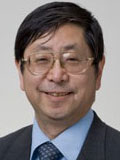 Prof Katsunori Suzuki is currently professor, director of the Environment Preservation Center, Kanazawa University, Japan. He specialises in Environmental Policy, Environment Education and Civil and environmental engineering. He has previously served as the Director, Ministry of the Environment/Environment Agency Environmental Protection Division, Senior Fellow at United Nations University Institute of Advanced Studies (UNU-IAS), Environmental Specialist at the United Nations Economic and Social Commission for Asia and the Pacific Environment Coordinating Unit, Environment Expert at the World Bank Environment Division, Asia Technical and the Acting Director General at the Japan Environmental Sanitation Center, Acid Deposition and Oxidant Research Center. He has also co-authored books on mobilizing for education for sustainable development and challenges for a sustainable society.
Prof Katsunori Suzuki is currently professor, director of the Environment Preservation Center, Kanazawa University, Japan. He specialises in Environmental Policy, Environment Education and Civil and environmental engineering. He has previously served as the Director, Ministry of the Environment/Environment Agency Environmental Protection Division, Senior Fellow at United Nations University Institute of Advanced Studies (UNU-IAS), Environmental Specialist at the United Nations Economic and Social Commission for Asia and the Pacific Environment Coordinating Unit, Environment Expert at the World Bank Environment Division, Asia Technical and the Acting Director General at the Japan Environmental Sanitation Center, Acid Deposition and Oxidant Research Center. He has also co-authored books on mobilizing for education for sustainable development and challenges for a sustainable society.
Karena Menzie
Lecturer in the School of Education and the Arts in the Central Queensland University, Australia
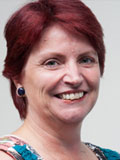 Karena Menzie has her PhD studies in the sphere of examining adolescent involvement in active citizenship, any benefits gained, and the relationship between perceived benefits and theories of resilience and wellbeing. She is a lecturer in the School of Education and the Arts in the Central Queensland University in Australia and has previously worked as an Education Consultant – Delivering the Global Education Project, assisting pre-service and in-service teachers to incorporate global perspectives into their curriculum and pedagogy.
Karena Menzie has her PhD studies in the sphere of examining adolescent involvement in active citizenship, any benefits gained, and the relationship between perceived benefits and theories of resilience and wellbeing. She is a lecturer in the School of Education and the Arts in the Central Queensland University in Australia and has previously worked as an Education Consultant – Delivering the Global Education Project, assisting pre-service and in-service teachers to incorporate global perspectives into their curriculum and pedagogy.
Dr. Christa Henze
Researcher and lecturer on Education for Sustainable Development (ESD) and Faculty of Biology at the University of Duisburg-Essen
 Dr. Christa Henze is a Researcher and lecturer on Education for Sustainable Development (ESD) and Faculty of Biology at the University of Duisburg-Essen. She also works at the Centre for Teacher Education in the sphere of Higher Education in ESD and Biodiversity in ESD. She is an expert on ESD appointed by the Government and a member in the steering group working with the ministries and ESD in different sectors of education. Dr. Henze is interested in modelling new forms in teaching and learning for students and achieving competencies while learning seminar and knowledge frames.
Dr. Christa Henze is a Researcher and lecturer on Education for Sustainable Development (ESD) and Faculty of Biology at the University of Duisburg-Essen. She also works at the Centre for Teacher Education in the sphere of Higher Education in ESD and Biodiversity in ESD. She is an expert on ESD appointed by the Government and a member in the steering group working with the ministries and ESD in different sectors of education. Dr. Henze is interested in modelling new forms in teaching and learning for students and achieving competencies while learning seminar and knowledge frames.
Dr. Nguka Gordon Ochieng
Head of the Department of Nutrition Sciences at Masinde Muliro University of Science and Technology, Kenya
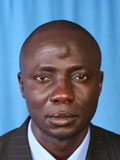 Dr Gordon Nguka is the head of the Department of Nutrition Sciences at Masinde Muliro University of Science and Technology, Kenya. He is a Doctor of Philosophy in Medical Dietetics and Paediatric Physiology. His key skills and expertise lies in the sphere of nutrition and nutrition assessment, body composition analysis, nutritional and metabolic diseases, and nutrition education. He has authored several books on the role of social, economic and demographic factors on childhood malnutrition, influence of maternal and child’s demographic factors on protein energy malnutrition in children under five, and the crisis of severe acute malnutrition among children in Southern Sudan.
Dr Gordon Nguka is the head of the Department of Nutrition Sciences at Masinde Muliro University of Science and Technology, Kenya. He is a Doctor of Philosophy in Medical Dietetics and Paediatric Physiology. His key skills and expertise lies in the sphere of nutrition and nutrition assessment, body composition analysis, nutritional and metabolic diseases, and nutrition education. He has authored several books on the role of social, economic and demographic factors on childhood malnutrition, influence of maternal and child’s demographic factors on protein energy malnutrition in children under five, and the crisis of severe acute malnutrition among children in Southern Sudan.
Jean-Christophe Carteron is the Director of CSR, KEDGE Business School – France. Since 2012 he has been the Senior Advisor for the ‘Higher Education Sustainable Initiative’. He was a cofounder of the ‘The Platform for Sustainability Performance in Education”, supported by UNESCO, PRME, Global Compact and UNEP.
Peter Ronald deSouza is a professor at Centre for the Study of Developing Societies (CSDS) and holds the Dr S. Radhakrishnan Chair of Rajya Sabha till April 2017. He has served as an expert and consultant for the UNDP, World Bank, ICNRD, International IDEA, Ford Foundation and Inter Parliamentary Union.
Osamu Abe
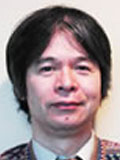 Osamu Abe is a Professor at the Rikkyo University/Chair of the Japan Council on the UN Decade of Education for Sustainable Development (ESD-J) / Japan. At the Johannesburg Summit of 2002, he co-sponsored the proposal of “UN Decade of ESD”, and has since been engaged in the activities for the promotion of DESD both in and outside Japan.
Osamu Abe is a Professor at the Rikkyo University/Chair of the Japan Council on the UN Decade of Education for Sustainable Development (ESD-J) / Japan. At the Johannesburg Summit of 2002, he co-sponsored the proposal of “UN Decade of ESD”, and has since been engaged in the activities for the promotion of DESD both in and outside Japan.
Adriana Patricia Valenzuela is a specialist on education, training and public awareness - United Nations Framework Convention on Climate Change UNFCCC. She has previously worked with the National Council for Climate Change and Clean Development Mechanism (CNCCMDL), United Nations Institute for Training & Research - UNITAR, and Alcaldia de Bogotá Secretaría Distrital de Ambiente.
Torvald Jacobsson
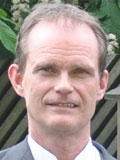 Torvald Jacobsson is the Director of Young Masters Programme, Lund University, Sweden, which is a free, global web-based education and learning network. It offers a unique learning experience by connecting youth and building understanding and cooperation about sustainability issues.
Torvald Jacobsson is the Director of Young Masters Programme, Lund University, Sweden, which is a free, global web-based education and learning network. It offers a unique learning experience by connecting youth and building understanding and cooperation about sustainability issues.
Dr. Anantha Duraiappah
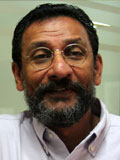 Dr. Anantha Duraiappah is a development environmental economist. He has written numerous articles and books on the economics of sustainable development. He has taught at numerous universities and is a visiting professor at the IR3S at the University of Tokyo. He is a founding fellow of the Human Development and Capability Association and a fellow of the World Academy of Arts and Sciences. Professor Duraiappah was the report director for the highly acclaimed Inclusive Wealth Report released at the Rio+20 Summit in 2012. He is presently the founding director of the Mahatma Gandhi Institute of Education for Peace and Sustainable Development – the first UNESCO Category 1 Institute of education in the Asia-Pacific region. Professor Duraiappah received his PhD in Economics from the University of Texas at Austin. He has taught and researched at the National University of Singapore, the European University Institute in Florence, Italy and the Free University of Amsterdam. His main areas of research include new pedagogy methods for teaching and learning about Peace and Sustainable Development. He also works in the area of computational modeling of sustainable development.
Dr. Anantha Duraiappah is a development environmental economist. He has written numerous articles and books on the economics of sustainable development. He has taught at numerous universities and is a visiting professor at the IR3S at the University of Tokyo. He is a founding fellow of the Human Development and Capability Association and a fellow of the World Academy of Arts and Sciences. Professor Duraiappah was the report director for the highly acclaimed Inclusive Wealth Report released at the Rio+20 Summit in 2012. He is presently the founding director of the Mahatma Gandhi Institute of Education for Peace and Sustainable Development – the first UNESCO Category 1 Institute of education in the Asia-Pacific region. Professor Duraiappah received his PhD in Economics from the University of Texas at Austin. He has taught and researched at the National University of Singapore, the European University Institute in Florence, Italy and the Free University of Amsterdam. His main areas of research include new pedagogy methods for teaching and learning about Peace and Sustainable Development. He also works in the area of computational modeling of sustainable development.
Dr. Shaleen Singhal
Head of the Department of Policy Studies at TERI University
Principle Investigator of the UNEP - EU funded Switch Asia Initiative
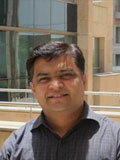 Dr. Shaleen Singhal is Head of the Department of Policy Studies at TERI University. He is Principle Investigator of the UNEP - EU funded Switch Asia Initiative focusing on learning for Sustainable Consumption and Production, at TERI University. Dr. Singhal has over 18 years of academic, research and consulting experience of working on sustainable urban development issues in India and the United Kingdom. Previously he had served the core faculty position in Sustainability Design at School of the Built Environment, University of Ulster, UK and was a member of the Built Environment Research Institute. His recent publications emphasize the significance of low carbon urban development, infrastructure performance, ecology based urban planning and sustainable regeneration for competitiveness of cities.
Dr. Shaleen Singhal is Head of the Department of Policy Studies at TERI University. He is Principle Investigator of the UNEP - EU funded Switch Asia Initiative focusing on learning for Sustainable Consumption and Production, at TERI University. Dr. Singhal has over 18 years of academic, research and consulting experience of working on sustainable urban development issues in India and the United Kingdom. Previously he had served the core faculty position in Sustainability Design at School of the Built Environment, University of Ulster, UK and was a member of the Built Environment Research Institute. His recent publications emphasize the significance of low carbon urban development, infrastructure performance, ecology based urban planning and sustainable regeneration for competitiveness of cities.
Dr. Malini Balakrishnan
Senior Fellow in the Energy-Environment Technology Development Division at TERI, New Delhi, India
Adjunct faculty at TERI University
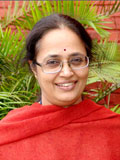 Dr. Malini Balakrishnan is a Senior Fellow in the Energy-Environment Technology Development Division at TERI (The Energy and Resources Institute), New Delhi, India and an adjunct faculty at TERI University, where she guides doctoral students. She has been closely involved with different industry sectors working on a range of issues such as enhancing resource efficiency in metal finishing operations, process upgradation in sugar manufacturing, value added utilization of waste bagasse fly ash from sugar factories, and efficient water use and advanced wastewater treatment in alcohol distilleries. Dr Balakrishnan has a doctorate in biochemical engineering from IIT Delhi and Master's in Chemical Engineering from the University of Waterloo, Canada. She has over 90 publications in journals, conferences, books and 3 patent applications to her credit and is a reviewer for several peer reviewed international journals.
Dr. Malini Balakrishnan is a Senior Fellow in the Energy-Environment Technology Development Division at TERI (The Energy and Resources Institute), New Delhi, India and an adjunct faculty at TERI University, where she guides doctoral students. She has been closely involved with different industry sectors working on a range of issues such as enhancing resource efficiency in metal finishing operations, process upgradation in sugar manufacturing, value added utilization of waste bagasse fly ash from sugar factories, and efficient water use and advanced wastewater treatment in alcohol distilleries. Dr Balakrishnan has a doctorate in biochemical engineering from IIT Delhi and Master's in Chemical Engineering from the University of Waterloo, Canada. She has over 90 publications in journals, conferences, books and 3 patent applications to her credit and is a reviewer for several peer reviewed international journals.
Peter Ronald deSouza
Professor
Centre for the Study of Developing Societies
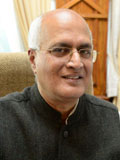 Peter Ronald deSouza is a professor at Centre for the Study of Developing Societies (CSDS) and holds the Dr S. Radhakrishnan Chair of Rajya Sabha till April 2017. He was director of the Indian Institute of Advanced Study (IIAS), Shimla, where he served two terms from 2007 till 2013. He then, as Interim director, set up the International Center for Human Development (IC4HD) between 2013-14. He was co-director of the Lokniti Programme at CSDS till 2007 and was at the Goa University department of Political Science from 1987-2003. He works on issues of democratic politics and in the comparative politics of South Asia. He was one of the three principal investigators of a five nation study on the State of Democracy in South Asia (2006). He has served as an expert and consultant for the UNDP, World Bank, ICNRD, International IDEA, Ford Foundation and Inter Parliamentary Union. He is also a regular columnist for The Hindu, The Tribune and Outlook.
Peter Ronald deSouza is a professor at Centre for the Study of Developing Societies (CSDS) and holds the Dr S. Radhakrishnan Chair of Rajya Sabha till April 2017. He was director of the Indian Institute of Advanced Study (IIAS), Shimla, where he served two terms from 2007 till 2013. He then, as Interim director, set up the International Center for Human Development (IC4HD) between 2013-14. He was co-director of the Lokniti Programme at CSDS till 2007 and was at the Goa University department of Political Science from 1987-2003. He works on issues of democratic politics and in the comparative politics of South Asia. He was one of the three principal investigators of a five nation study on the State of Democracy in South Asia (2006). He has served as an expert and consultant for the UNDP, World Bank, ICNRD, International IDEA, Ford Foundation and Inter Parliamentary Union. He is also a regular columnist for The Hindu, The Tribune and Outlook.
Dr. Sanjeevan Bajaj
Chief Executive Officer of FICCI Quality Forum
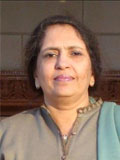 Dr. Sanjeevan Bajaj is Chief Executive Officer of FICCI Quality Forum, which specializes in training and consultancy for implementing Management Systems standards, including Environment Management Systems. Her current areas of interest include Life Cycle Management, Sustainable Lifestyles, Sustainable Consumption and Production, and Application of QMS principles to Government Service delivery. In her current role, she is leading FICCI’s work with United Nations Environment Program to promote Life Cycle thinking in India and develop locally relevant models for managing environmental and socio-economic impacts of business decisions. She represents India on the UNEP-SETAC Life Cycle Initiative International Board, and co-chairs the Initiative’s flagship project on capability building in developing countries. Dr. Bajaj holds a PhD in Management from the prestigious Indian Institute of Management, Ahmedabad with part of her dissertation fieldwork at ESSEC Paris.
Dr. Sanjeevan Bajaj is Chief Executive Officer of FICCI Quality Forum, which specializes in training and consultancy for implementing Management Systems standards, including Environment Management Systems. Her current areas of interest include Life Cycle Management, Sustainable Lifestyles, Sustainable Consumption and Production, and Application of QMS principles to Government Service delivery. In her current role, she is leading FICCI’s work with United Nations Environment Program to promote Life Cycle thinking in India and develop locally relevant models for managing environmental and socio-economic impacts of business decisions. She represents India on the UNEP-SETAC Life Cycle Initiative International Board, and co-chairs the Initiative’s flagship project on capability building in developing countries. Dr. Bajaj holds a PhD in Management from the prestigious Indian Institute of Management, Ahmedabad with part of her dissertation fieldwork at ESSEC Paris.
Rajat Batra
Head, STENUM Asia Sustainable Development Society
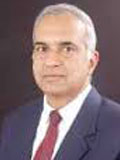 Rajat Batra is passionate about empowering enterprises to improve profitability and to achieve sustainable growth through the Resource Efficient Cleaner Production (RECP) approach. He leads the team at STENUM Asia Sustainable Development Society (an organisation he co-founded in 2007) in training, consultancy and implementation support efforts for enterprises. He has been actively practicing RECP at various levels for over a decade. He has undergone extensive training on sustainable development in Europe. He has more than 20 years of experience managing manufacturing operations and handling international collaborations for SMEs, also as an entrepreneur. Thus, he brings to STENUM Asia a deeper understanding of the issues and challenges businesses face, thereby customising the services to deliver high value to the enterprises. With a strong technical background (B. Tech from IIT-BHU and M.S. from The Ohio State University, USA) he is able to analyse and add value for process optimisation in various enterprises across sectors.
Rajat Batra is passionate about empowering enterprises to improve profitability and to achieve sustainable growth through the Resource Efficient Cleaner Production (RECP) approach. He leads the team at STENUM Asia Sustainable Development Society (an organisation he co-founded in 2007) in training, consultancy and implementation support efforts for enterprises. He has been actively practicing RECP at various levels for over a decade. He has undergone extensive training on sustainable development in Europe. He has more than 20 years of experience managing manufacturing operations and handling international collaborations for SMEs, also as an entrepreneur. Thus, he brings to STENUM Asia a deeper understanding of the issues and challenges businesses face, thereby customising the services to deliver high value to the enterprises. With a strong technical background (B. Tech from IIT-BHU and M.S. from The Ohio State University, USA) he is able to analyse and add value for process optimisation in various enterprises across sectors.
Rajan Gandhi
CEO of the NGO, Society in Action Group
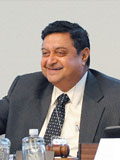 Rajan Gandhi is the CEO of the NGO, Society in Action Group, which works on Sustainable Consumption & Production, on Corporate Social responsibility and on Privacy and Consumer Rights. Mr. Gandhi has served on several committees of the Indian Ministries – of Consumer Affairs, the Bureau of Indian Standards, Environment and Tourism. He is recognized as one of India’s leading experts on Sustainable Consumption and is a consultant to the United Nations Environment Programme, Division of Technology, Industry & Economics. He is a visiting lecturer at the Engineering Staff College of India in Hyderabad, a member of the Board of the Asia-Pacific Roundtable on Sustainable Consumption & Production and on the Advisory Board of Privacy International. Earlier, Mr. Gandhi served in the private sector for over 33 years where he worked in the areas of sales, marketing, market research, purchase and corporate planning.
Rajan Gandhi is the CEO of the NGO, Society in Action Group, which works on Sustainable Consumption & Production, on Corporate Social responsibility and on Privacy and Consumer Rights. Mr. Gandhi has served on several committees of the Indian Ministries – of Consumer Affairs, the Bureau of Indian Standards, Environment and Tourism. He is recognized as one of India’s leading experts on Sustainable Consumption and is a consultant to the United Nations Environment Programme, Division of Technology, Industry & Economics. He is a visiting lecturer at the Engineering Staff College of India in Hyderabad, a member of the Board of the Asia-Pacific Roundtable on Sustainable Consumption & Production and on the Advisory Board of Privacy International. Earlier, Mr. Gandhi served in the private sector for over 33 years where he worked in the areas of sales, marketing, market research, purchase and corporate planning.
Shri Susheel Kumar
Special Secretary, Ministry of Environment, Forest and Climate Change, Government of India
 Shri Susheel Kumar, Special Secretary, Ministry of Environment, Forest and Climate Change, Government of India is a member of 1982 batch of the Indian Administrative Service (IAS) and has about 32 years of experience in Government at senior levels. He is supervising development and preparation of India’s National Communication and other new information to UNFCCC which involves preparation of national greenhouse gas inventories and assessment of impact, vulnerability and adaptation to projected climate change.
Shri Susheel Kumar, Special Secretary, Ministry of Environment, Forest and Climate Change, Government of India is a member of 1982 batch of the Indian Administrative Service (IAS) and has about 32 years of experience in Government at senior levels. He is supervising development and preparation of India’s National Communication and other new information to UNFCCC which involves preparation of national greenhouse gas inventories and assessment of impact, vulnerability and adaptation to projected climate change.
Dr. Ashok Khosla
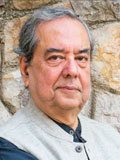 Dr. Ashok Khosla founded, and was the president, of the thirty-year-old Development Alternatives Group and now chairs its Board. Currently, Dr Khosla is the president of the International Union for Conservation of Nature (IUCN) and co-chair of the Resource Panel, which has been set up by UNEP to investigate the status and trends of natural resource use in the global economy.
Dr. Ashok Khosla founded, and was the president, of the thirty-year-old Development Alternatives Group and now chairs its Board. Currently, Dr Khosla is the president of the International Union for Conservation of Nature (IUCN) and co-chair of the Resource Panel, which has been set up by UNEP to investigate the status and trends of natural resource use in the global economy.
Ela R. Bhatt
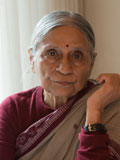 Ela R. Bhatt, a Gandhian, is widely recognized as one of the world’s most remarkable pioneers and entrepreneurial forces in grassroots development. In 1972, she founded the Self-Employed Women’s Association (SEWA), a trade union with more than 1.3 million members now. She was a Member of the Indian Parliament Rajya sabha and subsequently a Member of the Indian Planning Commission.
Ela R. Bhatt, a Gandhian, is widely recognized as one of the world’s most remarkable pioneers and entrepreneurial forces in grassroots development. In 1972, she founded the Self-Employed Women’s Association (SEWA), a trade union with more than 1.3 million members now. She was a Member of the Indian Parliament Rajya sabha and subsequently a Member of the Indian Planning Commission.
Dr. Sudarshan Iyengar
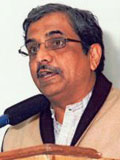 Dr. Sudarshan Iyengar is the former Vice Chancellor of Gujarat Vidyapith. He has previously worked as the Director of the Centre for Social Studies, Surat, and was the Director of Gujarat Institute of Development Research. He has been a member of various government and non-government advisory committees at the state and national level.
Dr. Sudarshan Iyengar is the former Vice Chancellor of Gujarat Vidyapith. He has previously worked as the Director of the Centre for Social Studies, Surat, and was the Director of Gujarat Institute of Development Research. He has been a member of various government and non-government advisory committees at the state and national level.
Sunita Narain
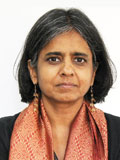 Sunita Narain has been with the Centre for Science and Environment (CSE) since 1982. She is currently the director general of the Centre and the director of the Society for Environmental Communications and publisher of the fortnightly magazine, Down To Earth. She is a writer and environmentalist, who uses knowledge for change.
Sunita Narain has been with the Centre for Science and Environment (CSE) since 1982. She is currently the director general of the Centre and the director of the Society for Environmental Communications and publisher of the fortnightly magazine, Down To Earth. She is a writer and environmentalist, who uses knowledge for change.
Anil Kumar Gupta
 Anil Kumar Gupta is a globally renowned scholar in the area of grassroots innovations. He is the founder of the Honey Bee Network and is also a Professor at the Indian Institute of Management, Ahmedabad. Besides, he holds the Executive Vice Chair of the National Innovation Foundation. He was awarded the Padma Shri in the year 2004, one of the highest civilian awards in India, for his contributions to management education.
Anil Kumar Gupta is a globally renowned scholar in the area of grassroots innovations. He is the founder of the Honey Bee Network and is also a Professor at the Indian Institute of Management, Ahmedabad. Besides, he holds the Executive Vice Chair of the National Innovation Foundation. He was awarded the Padma Shri in the year 2004, one of the highest civilian awards in India, for his contributions to management education.
Hem Pande
Hem Pande is a 1982 batch Indian Administrative Services (IAS) officer, presently working as the Special Secretary, Ministry of Environment, Forest and Climate Change, Government of India (GoI). Prior to the present portfolio, he worked as the Joint Secretary in MoEF and handled Biodiversity, Bio-safety, International Cooperation, Global Environment Facility and Animal Welfare issues. As the National Focal Point to Convention on Biological Diversity (CBD), Hem Pande was responsible for successful hosting of the Eleventh Conference of Parties to the CBD during October 2012 at Hyderabad, India.
Professor Mohandas B. Menon
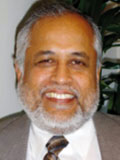 Professor Dr Mohan Menon is presently Deputy Vice-Chancellor (Academic) in Wawasan Open University, Malaysia. He has extensive experience in teaching, research, and implementing innovations related to teaching-learning systems and open education in addition to administrative experience during his long career as Research Fellow and Lecturer at the Centre of Advanced Study in Education, M.S. University of Baroda (1976-1987), Planning Officer & Professor/Director, Education in IGNOU (1990-2001), Chairman, NIOS (1996-99), Education Specialist & Team Leader in the Commonwealth of Learning, Vancouver (2001-2008) and Acting Director/Chief at the UNESCO Education Programme, Amman (2008-2011). He has consulted extensively for international agencies such as UNESCO, UNDP, World Bank, DANIDA, UNICEF, COL, IDRC and DFID in addition to providing expert professional support to MHRD, Government of India and published several books, monographs, conceptual and research articles, learning materials, quality assurance and training tool-kits to his credit. He is presently in the Board of International Council for Education on Teaching (ICET).
Professor Dr Mohan Menon is presently Deputy Vice-Chancellor (Academic) in Wawasan Open University, Malaysia. He has extensive experience in teaching, research, and implementing innovations related to teaching-learning systems and open education in addition to administrative experience during his long career as Research Fellow and Lecturer at the Centre of Advanced Study in Education, M.S. University of Baroda (1976-1987), Planning Officer & Professor/Director, Education in IGNOU (1990-2001), Chairman, NIOS (1996-99), Education Specialist & Team Leader in the Commonwealth of Learning, Vancouver (2001-2008) and Acting Director/Chief at the UNESCO Education Programme, Amman (2008-2011). He has consulted extensively for international agencies such as UNESCO, UNDP, World Bank, DANIDA, UNICEF, COL, IDRC and DFID in addition to providing expert professional support to MHRD, Government of India and published several books, monographs, conceptual and research articles, learning materials, quality assurance and training tool-kits to his credit. He is presently in the Board of International Council for Education on Teaching (ICET).
Sonal Zaveri
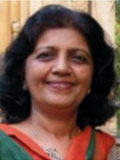 Sonal Zaveri is a founder member of the Community of Evaluators, South Asia. She is an independent consultant with 25 years of experience in strategic planning and evaluation. She has worked with academia, government, NGOs, INGOs and the UN in 19 countries. Sonal’s interests include how rights, participation and gender affect evaluative thinking and use as well as methods and tools that enable such analysis. Her current evaluations have focused on the use of transformative paradigms as well as feminist and utilization focused evaluation approaches. She led the Program team for the Second COE Conclave held in Kathmandu February 2013. Other affiliations include member of the feminist evaluators group in India, contributor to the Teaching Evaluation in South Asia (TESA) curriculum initiative, international advisor with the Child-to-Child Trust at the Institute of Education, University of London and accredited consultant with the Technical Support Facility of UNAIDS in South and South-east Asia.
Sonal Zaveri is a founder member of the Community of Evaluators, South Asia. She is an independent consultant with 25 years of experience in strategic planning and evaluation. She has worked with academia, government, NGOs, INGOs and the UN in 19 countries. Sonal’s interests include how rights, participation and gender affect evaluative thinking and use as well as methods and tools that enable such analysis. Her current evaluations have focused on the use of transformative paradigms as well as feminist and utilization focused evaluation approaches. She led the Program team for the Second COE Conclave held in Kathmandu February 2013. Other affiliations include member of the feminist evaluators group in India, contributor to the Teaching Evaluation in South Asia (TESA) curriculum initiative, international advisor with the Child-to-Child Trust at the Institute of Education, University of London and accredited consultant with the Technical Support Facility of UNAIDS in South and South-east Asia.

